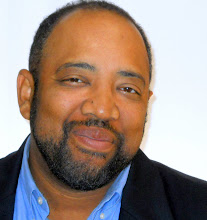In an interesting role reversal, I recently had to interview several candidates for an open admin position. Not too long ago, I had been on the other side, acting as interviewee not interviewer.
After screening and interviewing a bunch of people, I learned a host of lessons that I probably should have known but maybe forgotten or didn't take seriously enough. In no particular order, here are those lessons and also some advice my friends who are hiring managers always pass on:
- If you have the interview, they mostly think you can do the job. They want to know they can work with you. Well, also they want to make sure you weren't lying on the resume. But mostly, they are looking for fit. Chris Rock once said on a date you don't what to be yourself, you want to be some one people like. I think that applies here too.
- Cover letters to tailored the job offering are noticed. Forms letters are too. Which do you think stands out from the pile?
- There is an old adage in golf, you can't win a tournament on the first day, but you can lose it. Talking to the screener is a lot like that, you can't win the job talking to the screener, but you can lose it.
- Saying you can do anything is not a helpful response. Employers don't need anything done; they have a specific task in mind. They want to know that you can do that thing.
- Thank you notes are better than nice. A well written thank you note reminds the interviewer why they plucked your name out of the pile and should remind them why they want to see more of you.
- Promptness counts. Given the high volume of resumes for every position out there, most people stop after they get a couple of handfuls of solid candidates. Check the job boards and Craig's List every day. Better yet, set up alerts.
- Neatness counts. But you knew that already.
- A thank you note from someone who didn't get the job or interview is a very nice touch. Not sure it helps get a job, but it's memorable and if karma counts for anything, people who write those notes should be rewarded.
- Research. How can you talk about how you can help a company if you don't know anything about the company? Research.
- White space and few important details mean more on a resume than a long list of accomplishments that are too closely packed to read.
- Back to the point number one, on an interview think like you are on a date with the person of your dreams. Your goal is to make the interviewer think they want to spend the rest of their life with you.
- Putting your salary requirements in a cover letter just isn't a good idea. You may think you are saving time and unnecessary interviews, but in reality you are cutting down the number of interviews you get. Remember, you want the interview. Heck sometimes you may be offered a different position.
- Practice your interview skills. Once you have the interview, make sure you shine. Work with an experienced professional to make sure you ace the interview.
- Practice your interview skills. It's important enough that I have to mention it twice.
As a PR person, I'd always thought that I was a good candidate and interviewer, that whole positioning thing, but in sitting on the other side of the desk, I'm not so sure anymore. I promise you though, I'll follow my own advice that next time I need it.



